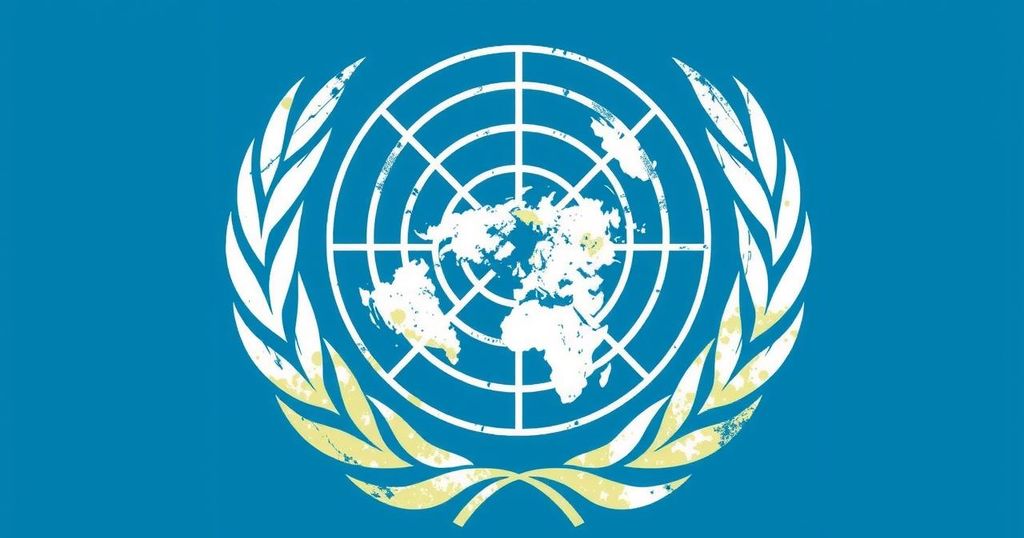COP29 raised concerns about the effectiveness of UN climate negotiations, revealing insufficient financial commitments to developing nations and persistent issues with defining climate finance. Despite minor progress with carbon trading frameworks, reliance on loans rather than grants exacerbates the debt situation for vulnerable countries. Major emitters’ resistance to fossil fuel reduction remains a significant hurdle, underscoring the urgency for innovative funding and equitable climate policies.
The recent COP29 climate conference held in Azerbaijan has amplified concerns regarding the credibility and effectiveness of the United Nations climate negotiation process amid ongoing global warming challenges. Experts indicate that the outputs of COP29 are insufficient with targets that leave vulnerable nations exposed and the expected financial support falling significantly short. For instance, while rich nations promised $300 billion annually to assist developing countries, it is less than a quarter of what was requested, and not entirely in the grants that those nations need.
The UN Framework Convention on Climate Change (UNFCCC) presents an inadequate framework for addressing fundamental issues, such as defining climate finance. The reliance on private sector funding to meet inadequate financing goals further complicates matters, as many developing countries struggle with high repayment burdens and unfavorable loan conditions. Good practice for climate action financing is criticized for prioritizing superficial alignment with financial mechanisms over meaningful action against climate injustices. The situation is compounded by the fact that most climate finance has manifested as loans, entrenching debt rather than providing immediate relief.
The debate on whether developing countries owe a debt to wealthier nations has gained momentum, as many of the most vulnerable states contribute minimally to global carbon emissions yet suffer disproportionately from climate impacts. Calls for a shift to a “polluter pays” model propose taxing those responsible for emissions while seeking innovative solutions to generate the necessary climate funds.
Discussions around fossil fuels at COP29 remained contentious, with significant resistance from major polluters, thus hindering genuine progress towards reducing reliance on fossil fuels. In addition, a lack of substantial commitments made in previous summits leaves unresolved critical issues that require urgent attention.
The conference managed to establish rules for a global carbon trading market after protracted deliberations, yet significant concerns linger regarding the integrity and efficacy of such a market. Analysts argue that lax standards may undermine the entire approach to carbon trading, resulting in potential abuses and failure to mitigate climate impacts effectively.
Finally, despite criticisms, COP meetings serve as crucial platforms for international dialogues on climate change. Suggestions for improvement include more frequent regional meetings and proactive measures from top emitters. Moving forward, the urgency of addressing climate change competencies will likely rise as its manifestations become increasingly dire.
The UN climate change summits, specifically the COP series, are designed to facilitate international cooperation and negotiations to combat climate change. Despite their intention, there have been persistent criticisms regarding their effectiveness in addressing the needs of the most vulnerable populations and developing nations. Significant disparities exist regarding the financial commitments made by wealthier nations compared to what is requested by those most affected by climate change. The discussions typically orbit key areas such as climate finance definitions, the role of private funding, challenges posed by fossil fuel dependency, and the operationalization of carbon trading mechanisms. These summits often highlight the inadequacies of the current systems and the urgency for fundamental reforms in climate governance.
In summary, the COP29 conference underscored the ongoing inadequacies within the UN climate negotiation framework, particularly in its financial commitments and definitions. While some strides were made towards establishing a carbon trading system, significant obstacles remain in the path to equitable climate finance and genuine fossil fuel reduction commitments. The situation calls for innovative funding solutions, a more robust accountability approach for emissions, and intensified efforts from leading nations. As climate crises escalate, the need for urgent, transformative action has never been so apparent. The discussion surrounding climate equity and justice will be paramount as the world grapples with the mounting challenges posed by climate change.
Original Source: www.downtoearth.org.in






